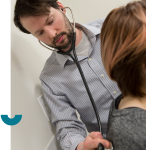I believe there is a need for a clear and unambiguous statement on the responsibilities of clinicians with respect to patients end of life desires and their reproductive health needs. Neither the present statement nor the proposed statement provide clear and unambiguous guidance on the right to conscious for clinicians.
The Canadian Association of MAiD Assessors and Providers (CAMAP) have prepared Nine Key Messages that outlines how to respect a clinician’s right to conscious. Court cases have established that clinicians cannot abandon patients who request help in accessing MAiD. It is established that there is a duty to refer when a clinician has a conscientious objection. Patients cannot be abandoned.
Below are the Nine Key Messages of CAMAP that provide a clear statement on the responsibilities of clinicians.
1. High-quality palliative care should be available to all patients who desire it at the end of life.
CAMAP strongly supports the development, extension and proper funding of excellent palliative
care services in all communities across Canada. This includes ensuring support for all clinicians
who provide these services for their patients.
2. All clinicians participating in MAiD work should be knowledgeable about palliative care
options and other potential supports available to the patient. All clinicians who provide end of
life care, including palliative care clinicians, should be knowledgeable about MAiD and the
resources available in their locality for patients seeking information about and/or referral for
MAID.
3. Respect for patient autonomy should be the foundation of all end of life care; there should be a
clear understanding of and respect for the patient’s goals of care. Should a patient choose to
pursue MAiD they should be supported in their decision. All medical care, including palliative
care if involved, should be continued.
4. MAiD should be included as an option in all end of life goals of care conversations with
potentially eligible patients.
5. For patients wishing to pursue MAiD, CAMAP strongly supports full access to all MAiD
services regardless of geography, facility or institution.
6. All health care providers who wish to participate in MAiD should have access to training and
be respected, permitted and supported in the work of assisted dying.
7. All health care providers who do not wish to participate in MAiD should be respected and
supported in their decision.
8. Conscience-based objection should not impair patient care. If a clinician objects to MAiD on
the basis of conscience and is unwilling to carry out a MAiD assessment, CAMAP strongly
supports the professional requirement of an effective referral to a clinician known to provide
MAiD or to a local or provincial MAiD coordination service.
9. Recognizing the primacy of patient-centred care and outcomes, CAMAP acknowledges and
appreciates the value of inter-professional teams and especially encourages the integration of
palliative care and MAiD
CPSA Portal will be unavailable from Dec. 13 – 15 due to a scheduled outage. Please complete your annual renewal and/or access documents and other applications outside of these dates. We apologize for the inconvenience.
- Albertans
 Physician DirectoryContact & practice info for Alberta physicians
Physician DirectoryContact & practice info for Alberta physicians ComplaintsFile a complaint about an Alberta physician
ComplaintsFile a complaint about an Alberta physician Patient SafetyResources & info for Albertans
Patient SafetyResources & info for Albertans Discipline DecisionsWe post decisions as they are available
Discipline DecisionsWe post decisions as they are available Albertan FAQsFrequently asked questions and responses
Albertan FAQsFrequently asked questions and responses ConversationsShare your healthcare experiences
ConversationsShare your healthcare experiences
- Physicians
 RegistrationApply to practice & learn about assessments
RegistrationApply to practice & learn about assessments ComplaintsInfo about complaints, hearings & appeals
ComplaintsInfo about complaints, hearings & appeals CompetenceTools & support for physician competence
CompetenceTools & support for physician competence PrescribingPrescribing resources & TPP Alberta info
PrescribingPrescribing resources & TPP Alberta info Physician HealthHealth & practice conditions monitoring
Physician HealthHealth & practice conditions monitoring Standards of PracticeExpectations of physician professionalism
Standards of PracticeExpectations of physician professionalism COVID-19 Info for PhysiciansGuidance & resources for physicians
COVID-19 Info for PhysiciansGuidance & resources for physicians
- Facilities & Clinics
- Physician Assistants
- About CPSA
 GovernanceInfo about our Council, committees and governance policies
GovernanceInfo about our Council, committees and governance policies Equity in Health CareOur commitment to safe and equitable care
Equity in Health CareOur commitment to safe and equitable care ResearchEvidence-based medical regulation
ResearchEvidence-based medical regulation OpportunitiesCareer and contract opportunities
OpportunitiesCareer and contract opportunities Corporate ServicesFee schedules and other operations resources
Corporate ServicesFee schedules and other operations resources MessengerOur monthly newsletter
MessengerOur monthly newsletter Grants & AwardsRecognizing and supporting our community
Grants & AwardsRecognizing and supporting our community Contact UsWays to reach us, plus info for media
Contact UsWays to reach us, plus info for media
-
- Registration
- Complaints
- Competence
- Prescribing
- Physician Health
- Standards of Practice
- COVID-19 Info for Physicians




Comments for this post are now closed. If you would like to share your feedback on this topic, please email support@cpsa.ca.